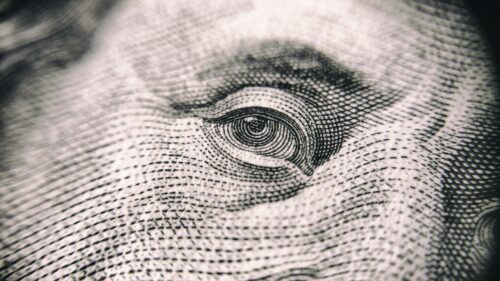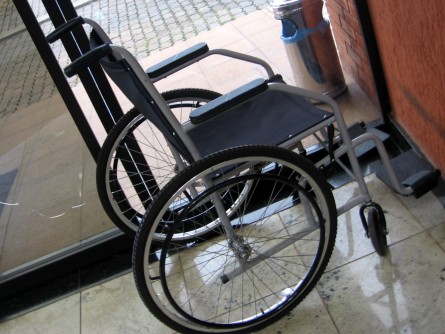But perhaps the thing that seemed most inspiring to an outsider was the pioneering spirit of their founding faculty and first classes of students. They were so excited about their new venture, though, that sometimes I worried they were ignoring some real problems. Each of these institutions has, in the past decade, had severe infighting, losing faculty, angering alumni, and upsetting donors. In the case of Ave Maria, the problems were over the question of the role of the founder, Tom Monaghan as well as the degree of insularity the school was going for. In the case of Patrick Henry, it was more a question of politics. Patrick Henry had turned into more of a bootcamp for Republican politicians than a liberal arts college. I wrote a bit about their controversy in the Chronicle a few years ago, and I wrote about Ave Maria in the Wall Street Journal.
Both of these pieces earned me plenty of letters to the editor and plenty of other outraged reaction, so it is with some trepidation that I make the observation that Kings College in New York seems to be headed down the same path--a path which pits its brightest students against the world which they are charged with transforming and which turns its professors into political personal trainers rather than expanders of minds.
King's opened in the late 1990s in the Empire State building. And it was supposed to be an evangelical college with a particular emphasis on exposing its young students to the world. When the school was having trouble gaining accreditation a number of years ago, I defended it in the New York Post. And I spent some time interviewing students and professors about the school. I have since been invited back on a couple of occasions. I was disappointed when they lost Peter Wood, who now heads the National Association of Scholars, and I also think that Marvin Olasky has done good things for the institution, even if his contribution had a more political flavor. But mostly I thought, they are attracting the right kinds of kids and they have found some good professors and they mostly have their heads screwed on straight.
But that was before they invited Dinesh D'Souza to be president. An article in New York Magazine, which could have been much harsher than it was, suggests that D'Souza is steering the school down a narrow political path. And should be a deep source of disappointment to anyone who cares about the liberal arts at King's College or the intellectual side of the Christian tradition.
Here's D'Souza talking to the reporter:
“I want to talk a little bit about what I call the unique villainy of Barack Obama,” D’Souza, 50, says with a grin. “In my view, it’s the villainy of nondisclosure.” Obama campaigned as a standard liberal, D’Souza says, but actually is a vehement anti-colonialist. “For Obama, the radical Muslims are on the right side of history—that’s why he is so unnaturally solicitous toward them.”
While the handler reminds the reporter that D'Souza speaks for himself, not the school, it is hard to imagine why D'Souza would be having such conversations at all if the school were important to him. The reporter sits in on a formal debate among students about whether "Democracy would be the best form of government in Muslim-majority countries." One of the students takes the position that "these people aren't ready for [it]." Stan Oakes, the former chancellor of the school, tells the reporter that “I love talking to people with whom I disagree...My new thing is talking to the Muslims, the ones who drive the taxicabs.” And then there is this, D'Souza's message to a recent class of students: “Some Christians hope to change this through bottom-up, grassroots techniques. But I’m skeptical about that approach. Consider minority groups like Jews and gays, groups whose influence far outweighs their relatively small numbers. How do they do it? By focusing on strategic institutions—finance, media, law."
Ahh yes, the Jews who have a disproportionate influence over finance. That kind of thinking will get your graduates ahead in New York.
If this is a school that is really aiming, as they claim, to send people into the highest echelons of Morgan Stanley, CNN, or Congress, they had better quit talking like this. Fifteen years in the Empire State building does not a cosmopolitan citizen make.
The particularly odd part of all of this is the assumption that what D'Souza will bring to the table is fundraising potential. Maybe I'm not in touch with this particular base, but the fact of the matter is that D'Souza has been written off as a crackpot by most of the conservatives I know. His book blaming the cultural left for 9/11 was the last straw for most. And it should have disqualified him for this job as well.
Which brings me back to the "new college" problem. Whatever complaints people may have about institutions that are 150 years old, however they are weighed down by bureaucracy, however they may have been pulled toward a more secular worldview, they don't turn on a dime. Students who enroll one year generally know what kind of institution they will be graduating from and donors who give money will generally know what kind of institution they are supporting. Newer schools may provide more excitement for all involved because of the potential for dramatic change. But change, as any good conservative will tell you, is not always for the better.
2 thoughts on “Illiberal education and the “new college” problem”
Comments are closed.






I teach economics at King’s College. Notwithstanding his political views, President D’Souza has told the faculty that we are quite free to disagree with his views and, also, that he does not intend to make any political ideology the focus of the College. In keeping with his early book Illiberal Education, he has voiced support for a truly liberal education, and his actions in leading the College have supported his words.
My colleagues and I do, indeed, present a broad range of views to students–broader than many students experienced at my own undergraduate (public) university. In contrast to a previous commenter I, for one, do not consider Chomsky or Zinn particularly worth reading (unless as examples of ideologically driven thinking), but I do give students Galbraith, Lekachman, and Marx.
If, as Riley says, the article in New York Magazine “suggests that D’Souza is steering the school down a narrow political path,” then that is only because that is what the author of the article was trying to see. I would like to invite Riley to come visit the College again herself.
I think there seems to be a leap being made here, which needs to be justified before we accept the conclusions.
The author argues that Dinesh D’Souza is saying things which are violating certain taboos, and/or which are factually wrong and that this will hurt the employment prospects of graduates from his college. Let us grant that this is true.
It does not, however, necessarily follow that these young people are getting an “illiberal education”. In fact, the willingness of the administration of a college, and its faculty, to violate taboos and to entertain minority opinions, is a necessary, although not sufficient, condition for their being able to sustain the sort of intellectual atmosphere that breeds liberally-educated young people.
It may be the case that a proper education makes one less employable by bankers. This is not necessarily a bad thing.
So what I would like to know is, are the students at D’Souza’s college getting a fair exposure to other points of view? Do articulate atheists ever make an appearance, either personally or via their writings, on this campus? Do the students hear the diverse voices of Islam? When they study American foreign policy, do they become familiar with the writings of Noam Chomsky, or of the “revisionist” school of historians? Do courses in American history feature Howard Zinn’s People’s History? Are outside speakers invited whose political views run counter the faculty consensus, and if so, are they shouted down are listened to and debated with in a civil manner?
I don’t know the answers to these questions, but I think we do need to know, before we write off this particular college.